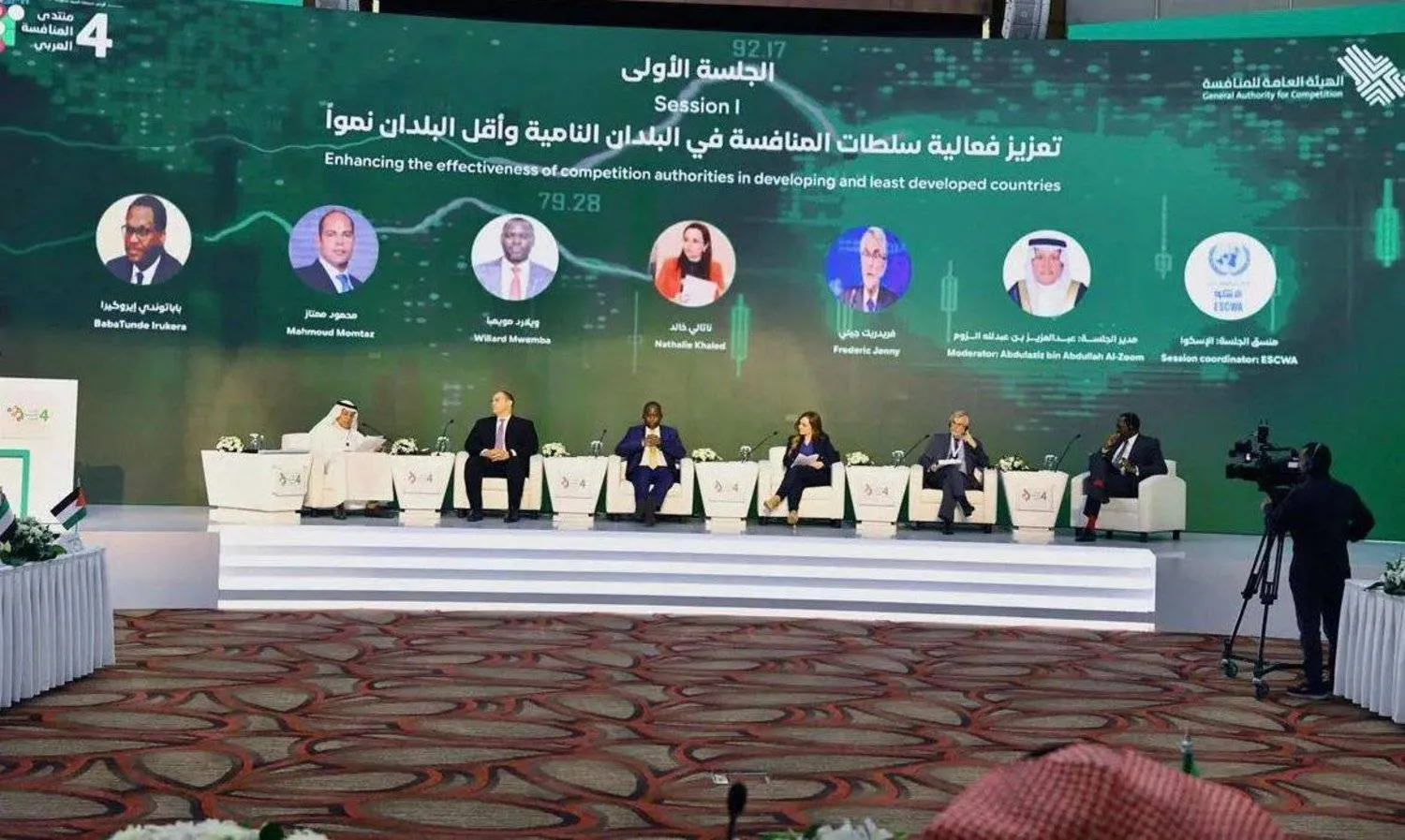An international forum held in Riyadh on Tuesday, called for the need to enact and enforce competition policies in the Arab region, in a way that helps improve economic growth and governance, in line with the goals of sustainable development.
A report on the legislative frameworks for the business environment in the Arab world in 2021 revealed that most countries lack independent institutions to enforce competition policies. The region registered a score of 3.73 out of 7, which points to the need for many reforms in terms of regulations and frameworks when comparing the situation in the Arab region with the best global practices.
Dr. Ahmed Al-Khulaifi, Chairman of the Board of Directors of the General Authority for Competition, stated that the Fourth Arab Competition Forum aspires to develop and improve competition regulations and legislation in the Arab world in order to bolster the well-being of the Arab citizens and raise the level of quality and abundance of goods and services.
Al-Khulaifi stressed the importance of Arab cooperation in protecting fair competition in the region, stressing the efforts of the relevant international organizations and participating experts to present their rich experiences.
Abdel Aziz Alzoom, CEO of the General Authority for Competition, told Asharq Al-Awsat that Saudi Arabia has become one of the advanced countries in terms of competition and anti-monopoly rules, and it supports other Arab states in this field.
“Some Arab countries are still in the early stages in terms of setting and enacting competition laws, as well as applying and implementing them on the ground,” Alzoom said, indicating that the forum aims to benefit from international expertise in order to build capacities.
The two-day Fourth Arab Forum for Competition will witness the participation of specialists and experts in competition agencies in Arab countries, and more than 15 experts and representatives of international agencies and organizations concerned with competition.









